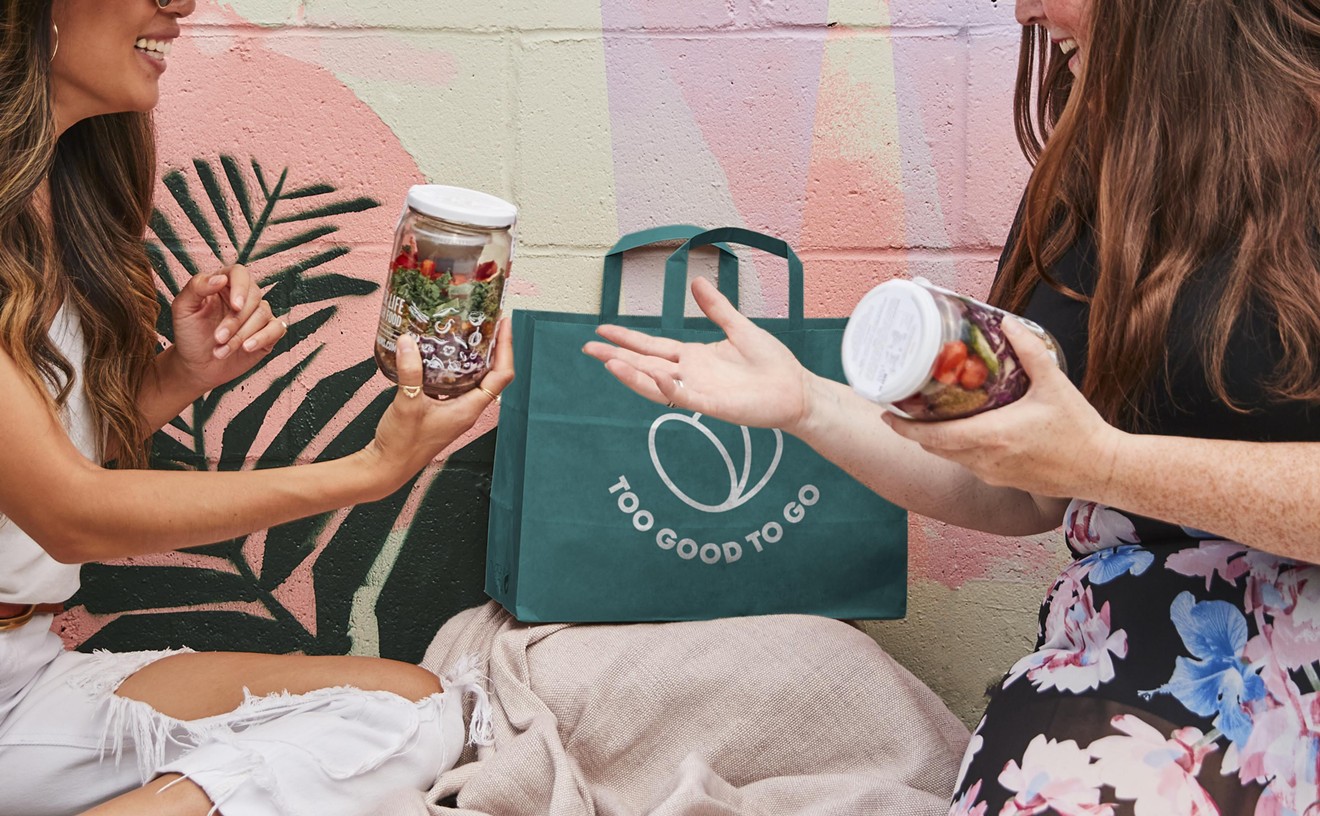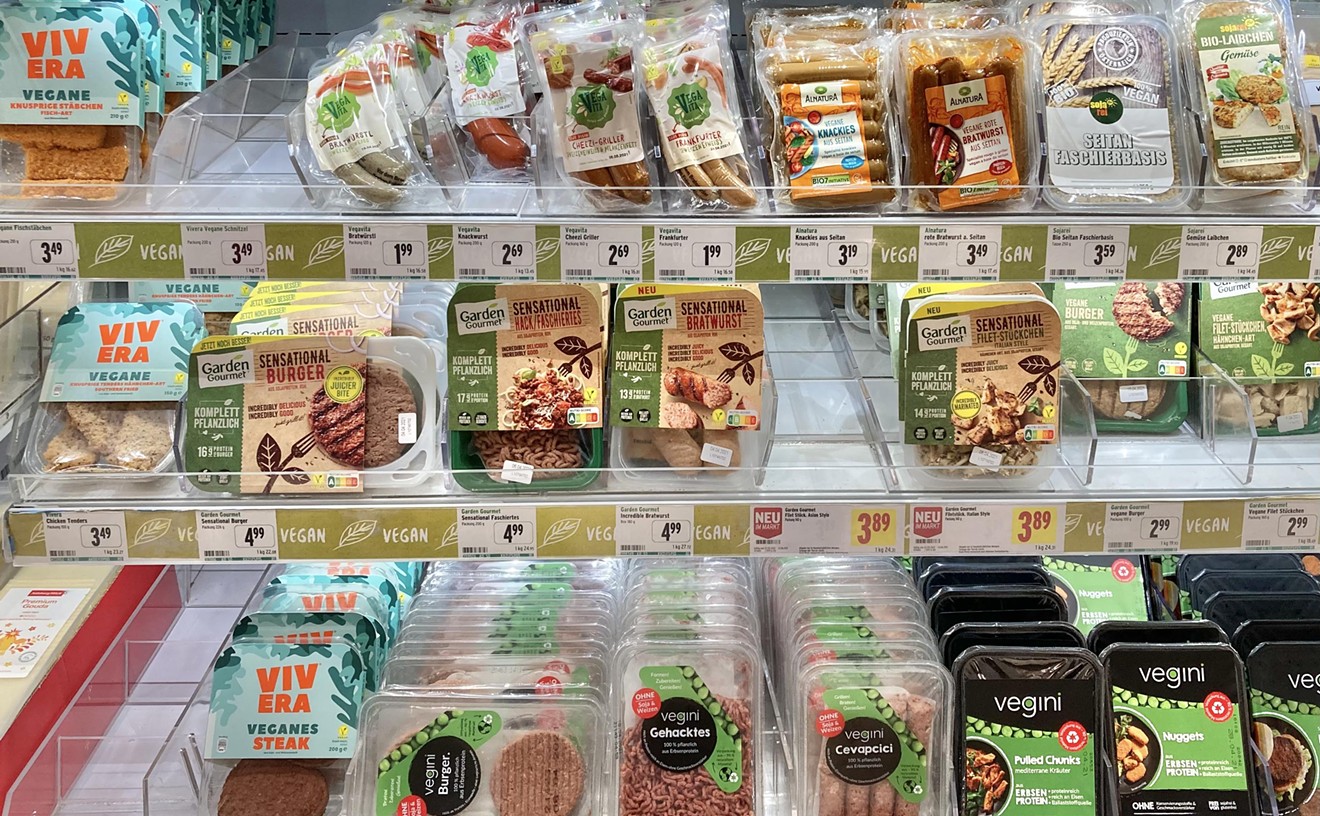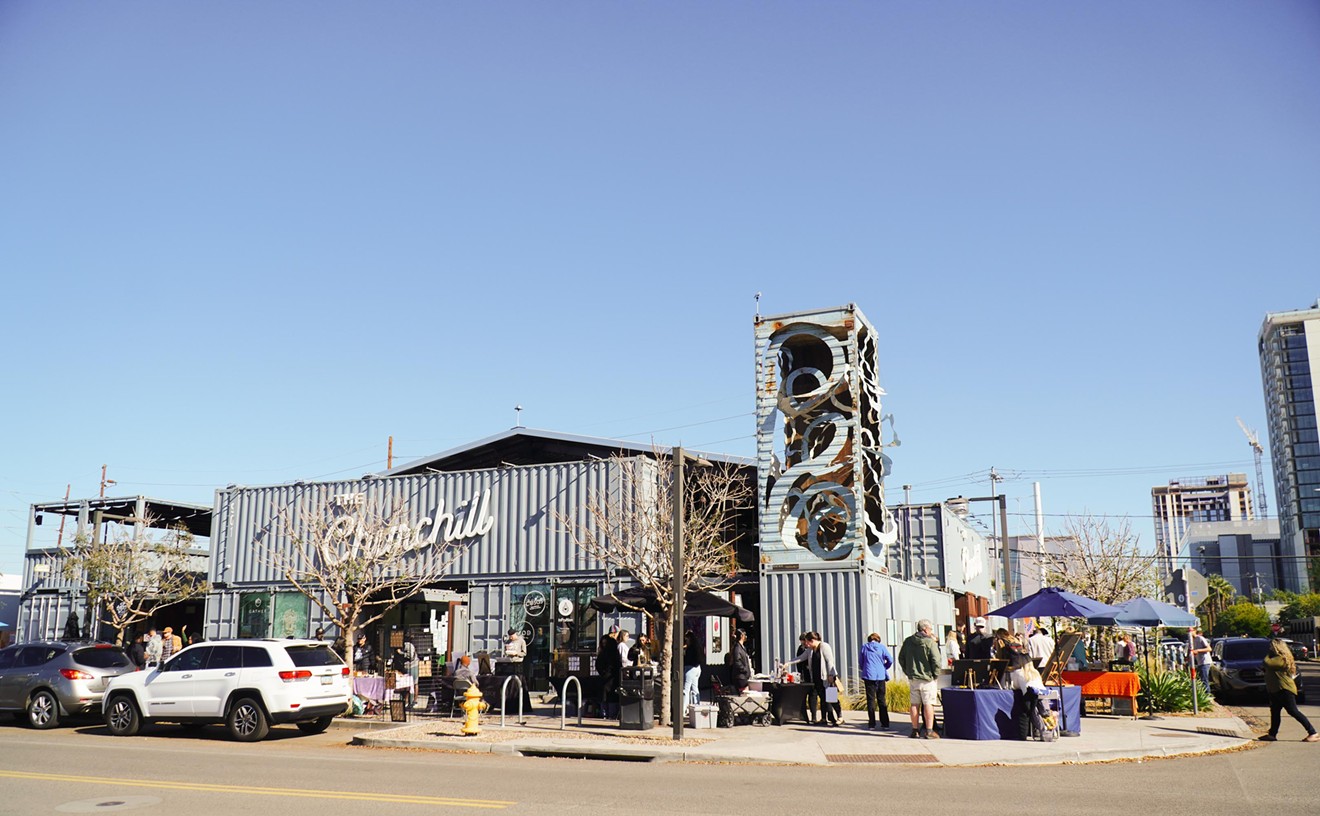Yasha from Russia European Market is the real deal, "the biggest Russian store in all of Arizona," Gavaev says. It's a little bit of Brooklyn's heavily Russian Brighton Beach (named after King George IV's eccentric 19th-century East Indian-style seaside palace) — right off the 51. But unlike New York's Brighton Beach, where according to Ukrainian travel writer Vital Vitaliev, "[a]n American, arriving there by accident, stands out and gets stared at like an Eskimo in the streets of Abu Dhabi," Yasha from Russia is staffed with friendly, if demure, folk ready to explain any of the hundreds of exotic products an adventurous shopper may be curious about, especially because a number of labels, written in either Cyrillic or Turkish, are devoid of any English translation.
The store is also a full-fledged community center, where people from formerly Soviet countries who have moved to Phoenix flock for advice from the gregarious Yasha on the area's best schools, job leads, housing opportunities and community services. It's Gavaev's way of paying back the kindnesses extended to him when he arrived in New York from Uzbekistan in 1979 with four children, a pregnant wife, no job and no appreciable English-language skills.
Yasha Gavaev's story is the classic immigrant's tale. He was born into a Jewish family in Kashkan, Uzbekistan, a place historically notorious for its religious intolerance. He decided to leave his native country in 1979 at the beginning of the Soviet war with Afghanistan, Uzbekistan's southern neighbor — a war considered to be the Soviet Union's Vietnam. "If you remember, at that time, [the Soviets] started the war with Afghanistan; besides that, there was a little bit of discrimination against our nationality," Gavaev recalls. "What you call the KGB would follow you step by step and tell you straight to your face, 'We're going to put you in jail — you Jews are going to be in jail anyway.' We held a family meeting with Mom and she said, 'Okay, guys, if we have to, we gotta leave.' In three months' time, we got lucky, so we left."
While Gavaev's entire extended family left, the group eventually split up, with some members going to Israel and 28-year-old Yasha and his immediate family landing in Brooklyn's Crown Heights, an enclave of mostly Hasidic Jews and black immigrants from the Caribbean at the time. "When we came here, I didn't have any relatives, nobody, just myself and my family," Gavaev says. "At the time, I wasn't thinking about going to school to learn English or to college." He eventually learned English on the streets, though finding a place to live with so many kids was a major challenge. Finally, a local synagogue put him in contact with a man with 10 grown children, who, sympathetic to his plight, rented him a first-floor apartment with a basement. It also hooked him up with a job at a Jewish-owned meat-delivery company, where because of the size of his family, he earned a generous $5 an hour making deliveries, while most employees earned only $1.75.
After two years, Gavaev invested hard-earned savings in a cab, driving a taxi until 1986 when he decided it was "too much pressure, too much stress, too scary" for a family man with so many children. It was that year he opened his first Russian grocery store, Caton Deli International, in Brooklyn's Borough Park area, another hotbed of Orthodox Judaism. Selling the first store, the family eventually moved to Queens; a second store was opened in 1994 with Yasha's name on it.
When five of his six children moved to Arizona in 1999, Gavaev and his second wife, Tatiana, who goes by the nickname Tanya, checked out the Phoenix area for business prospects, closing their Brooklyn store in 1999 to come here in 2000. "The Russian population has grown a lot since I came," Gavaev says. "There's people moving from New York, California, Seattle, Chicago — not only Russians, but Poles, Romanians, too. We cater to their food needs — whatever they need, they ask me 'can you get this?' I work hard and I'm getting it and people are happy."
From the look of traffic in his store, people are very happy, indeed. Deli cases are piled high with baked goods and hard-to-find food products from not only Eastern European countries, but from Germany and Italy as well. Special dough from Germany is baked into authentic Russian black bread that flies out the door faster than Gavaev's part-time kitchen crew of mostly personal friends from Leningrad, Uzbekistan and Latvia can bake it.
A custom-made tandoori oven with an industrial-strength exhaust system designed by Gavaev and built with bricks ordered from New York makes it possible for the store to bake fresh Uzbek-style flat bread very similar to Indian tandoori bread. An entire section of the store is devoted to wines and beers from Russia, Romania, Poland, Israel, Georgia, the former Yugoslavia and Bulgaria, with champagne from Belarus, Ukraine and Lithuania. With no license to sell hard liquor yet, iconic Russian vodka is the only item missing from the alcoholic lineup. Yasha points out that the store also has many Mexican customers, people who have married Russians and have fallen in love with Russian salamis and the good Eastern European beers he stocks.
Homemade, handmade takeout dishes, especially Siberian-style pelemeny — spicy, meat-filled dumplings that look like a cross between ravioli and won ton — keep customers coming back for more. "We do stuffed cabbage, stuffed chicken legs, Kiev cutlets — we do the best knishes — and piroshkis. We do good borscht and our most famous thing is Russian Siberian pelemeny," Gavaev says. "We also do vareneki [traditional boiled Ukrainian dumplings] with potato, cherry, cheese and sour cabbage fillings. It takes only seven minutes to prepare: Boil the water, drop it in and wait until it pops up. It's ready to eat with sour cream, adjika or lutenitsa [a thick, ketchup-y tomato and pepper sauce]. It's delicious and everybody's happy."
Customer satisfaction and service with a smile is Yasha's ultimate goal. In Russia, according to Gavaev, a customer complaint is handled by cursing and showing the customer the door. "This is not Russia. The customer is always right, so if we make mistakes, we're sorry and we're going to fix it."










